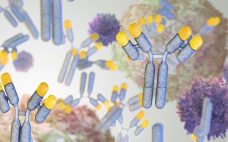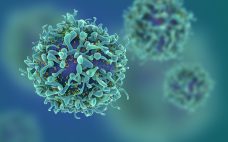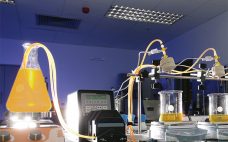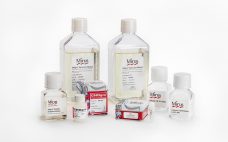The natural characteristics of antibodies, such as high binding affinity, specificity to a wide variety of targets, and good stability, make them ideal therapeutic candidates for many diseases. Therapeutic antibodies, in particular monoclonal antibodies (mAbs), deliver promising therapeutic results in several different disease areas, such as autoimmunity, oncology, and chronic inflammation. Researchers’ abilities to improve the breadth of antibodies have been aided by innovative technologies for antibody discovery, for instance, through humanization of mouse antibodies and phage display. However, advanced…
Author Archives: BPI Contributor
Integrated Generation and Characterization of CAR T Cells
Chimeric antigen receptor (CAR) T cell therapies have been approved by the FDA and other global public health agencies to treat B cell leukemias and have seen great clinical success. Autologous CAR T cell manufacturing involves isolating T cells from a patient, activating these cells, introducing an engineered CAR construct, and expanding the cells to a scale appropriate for therapeutic dosing. Patient samples from multiple sources result in inconsistent clinical outcomes and overall product quality. To ensure patient safety and…
Three Ways to Successfully Scale-Up Your Bioprocessing Production
When developing a biopharmaceutical manufacturing process, an R&D or process development team may fall into the trap of developing a process in the lab which is difficult to scale to work with larger volumes in production, leading to delays and costly additional development later on. It is therefore crucial that, where possible, technology is used at small-scale which can be scaled alongside the process in a consistent manner. Taking a thoughtful and strategic approach can help biopharmaceutical products get to…
Accelerating mRNA-Based Therapy Development with Scalable Purification of In Vitro Transcribed mRNA
This webcast features: Kelly Flook, Senior Product Manager, Purification Products, Thermo Fisher Scientific The diversity of potential mRNA-based therapies has led to increased interest in using synthetic mRNA as a tool in the treatment of multiple diseases, such as cancer, stem cell therapies, and infectious diseases. Nevertheless, obtaining larger quantities of synthetic mRNA for clinical treatment remains a challenge. Currently available mRNA purification methods are becoming a bottleneck for large-scale manufacture as the limits of research-scale purification techniques are realized.…
Ask the Expert: Translating Inhaled and Nasal Technologies for Biologics Delivery
Gastric delivery is unachievable for most biopharmaceuticals, so drug developers formulate biologics primarily for intravenous infusion or injection. However, inhaled and nasal delivery options are attracting considerable attention because they enable targeted delivery of a wide range of therapeutic proteins. On 23 June 2020, Mark Parry (technical director at Intertek) presented an “Ask the Expert” webinar that described critical considerations for inhaled and nasal delivery for biologics. Parry’s Presentation Because biopharmaceuticals are complex products, developers need compelling reasons to choose…
Ask the Expert: Ultrapure Gelatin Can Optimize Your Excipient Screening for Vaccine Formulation
In his 28 May 2020 “Ask the Expert” presentation, Jeroen Geeraerts (business development manager at Rousselot) highlighted that, as of May 2020, 118 candidate vaccines for the novel coronavirus (SARS-CoV-2) had reached clinical or preclinical evaluation. Of those, 11 use inactivated and live–attenuated approaches, which require strong stabilizing agents to maintain vaccine potency. Geeraerts explained why inactivated and live–attenuated vaccines require stabilizing agents and why vaccine companies prefer pharmaceutical-grade gelatin for such applications. Next, Geeraerts described how his company’s X-Pure…
Ask the Expert: An Innovative System for Advanced, High-Throughput Aggregate Analysis
Distinguishing aggregated active pharmaceutical ingredients (APIs) from other particle types is critical to evaluating a protein product’s stability, but standard characterization tools struggle to discriminate proteins from nonproteins with similar sizes, shapes, and morphologies. In a 25 June 2020 “Ask the Expert” webcast, Bernardo Cordovez (founder and chief scientific officer of Halo Labs) introduced his company’s Aura subvisible-particle analyzer. He explained how the device combines an innovative microscopy technique with sophisticated imaging software to characterize subvisible particles more quickly and…
CHOgro® High Yield Expression System: Achieve Higher Titers Faster in Suspension CHO Cells
This webcast features: Leisha Kopp, Applications Scientist, Mirus Bio Suspension Chinese Hamster Ovary (CHO) cells are often utilized for protein expression in biomanufacturing given their capacity for high-density growth in chemically defined media, human-biosimilar posttranslational modifications, and strong history of regulatory approval by the US Food and Drug Administration (FDA). However, many early stage researchers rely on HEK 293 systems for screening candidate compounds because of additional costs and time associated with production in CHO cells. The CHOgro® High Yield…
Enabling Large-Scale Production of Viral Vectors in the Gibco™ CTS LV-MAX Lentiviral Production System
This webcast features: Jonathan Zmuda, PhD, Director, Cell Biology, Life Science Solutions Group, Thermo Fisher Scientific The Gibco™ Cell Therapy Systems (CTS™) LV-MAX™ Lentiviral Production System enables scalable, high-titer production of lentiviral vectors using HEK293F-derived Gibco™ CTS™ Viral Production Cells adapted for high-density suspension growth in chemically defined, serum-free, and protein-free Gibco™ CTS™ LV-MAX™ Production Medium. Enhanced lentiviral production is enabled through the synergistic interplay of the LV-MAX components (including cells, production medium, supplement, enhancer, and transfection reagent), all of…
A Smart Path for Novel Biologics
Roche Pharma Research and Early Development (pRED) was faced with a challenge: double the number of projects in process development without significantly increasing headcount. Pawel Linke, a pRED lab automation specialist, tells the story of how the group approached this challenge with a focus on obtaining high quality data through automation and by integrating independent lab systems and devices to streamline their workflow. Implementation of high-throughput process development systems requires an orchestrated approach of both hardware and software solutions, so…








